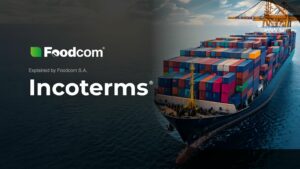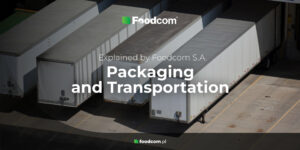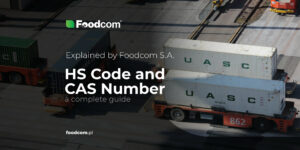Logistics – what is it?
In the context of Foodcom S.A., logistics encompasses the comprehensive planning, management, and execution of the flow of goods throughout the supply chain. It involves a series of interconnected processes, including procurement, transportation, warehousing, inventory management, and distribution. The primary objective of logistics is to ensure that products are efficiently and cost-effectively delivered to the right place, at the right time, and in the right condition, meeting customer demands while optimizing operational efficiency.
Most common questions
1. Why is logistics crucial in the food, feed, and industrial sectors?
In these sectors, logistics is vital for several reasons. It ensures that perishable goods, such as fresh produce or chemicals, are delivered promptly to maintain quality and safety. It optimizes inventory to prevent overstocking or shortages. Additionally, logistics plays a pivotal role in reducing costs and improving customer satisfaction by streamlining the supply chain.
2. What are the key components of logistics?
Logistics comprises several key components, including procurement (sourcing materials and products), transportation (movement of goods), warehousing (storage and inventory management), order fulfillment (picking, packing, and shipping), and distribution (getting products to customers). Information technology also plays a critical role in logistics, enabling real-time tracking and data analysis.
3. How does logistics impact sustainability?
Efficient logistics can contribute to sustainability by optimizing transportation routes to reduce emissions, minimizing packaging waste, and reducing food waste through better inventory management. It also supports ethical sourcing and transparent supply chains, which are increasingly important to environmentally conscious consumers.
4. What challenges can arise in logistics?
Logistics faces various challenges, including transportation delays, supply chain disruptions, changing customer demands, and regulatory compliance issues. Additionally, the complexity of international logistics can involve customs clearance, documentation, and compliance with trade regulations.
5. How does Foodcom S.A. ensure efficient logistics in its operations?
Foodcom S.A. places a strong emphasis on efficient logistics to meet customer expectations. This includes strategic partnerships with reliable carriers, state-of-the-art warehouse facilities, and advanced inventory management systems. The company continually assesses and adapts its logistics strategies to optimize performance, reduce costs, and ensure timely delivery of high-quality products to its clients.




